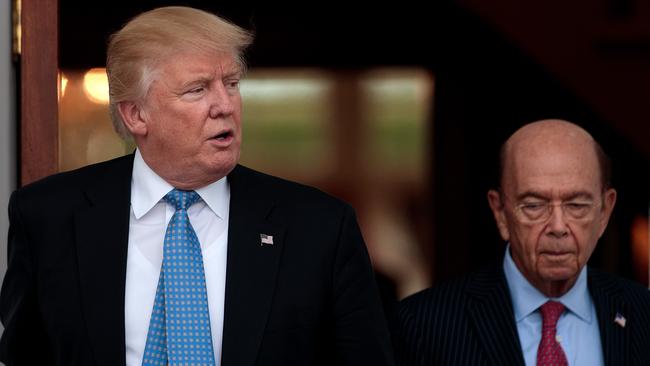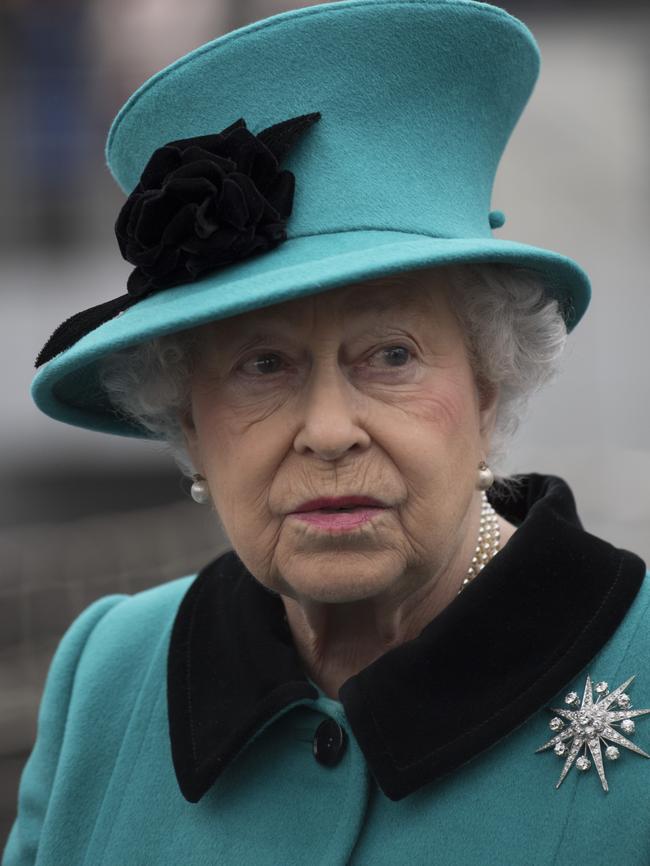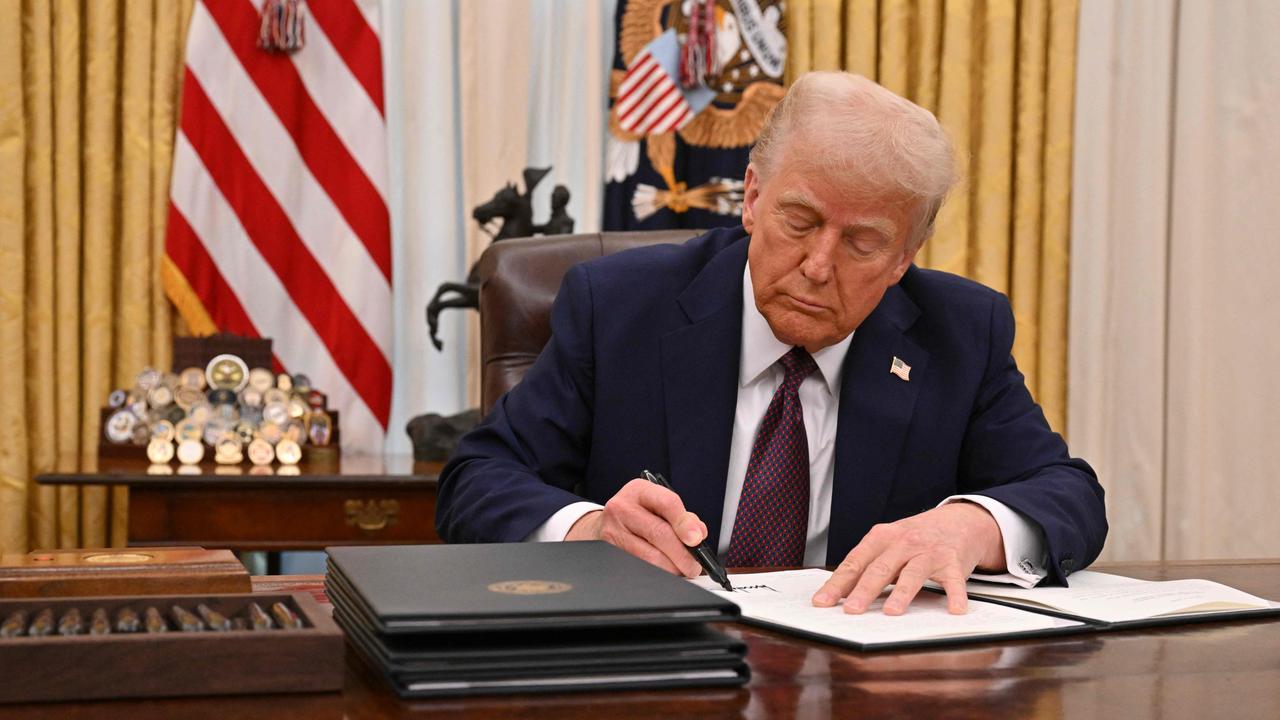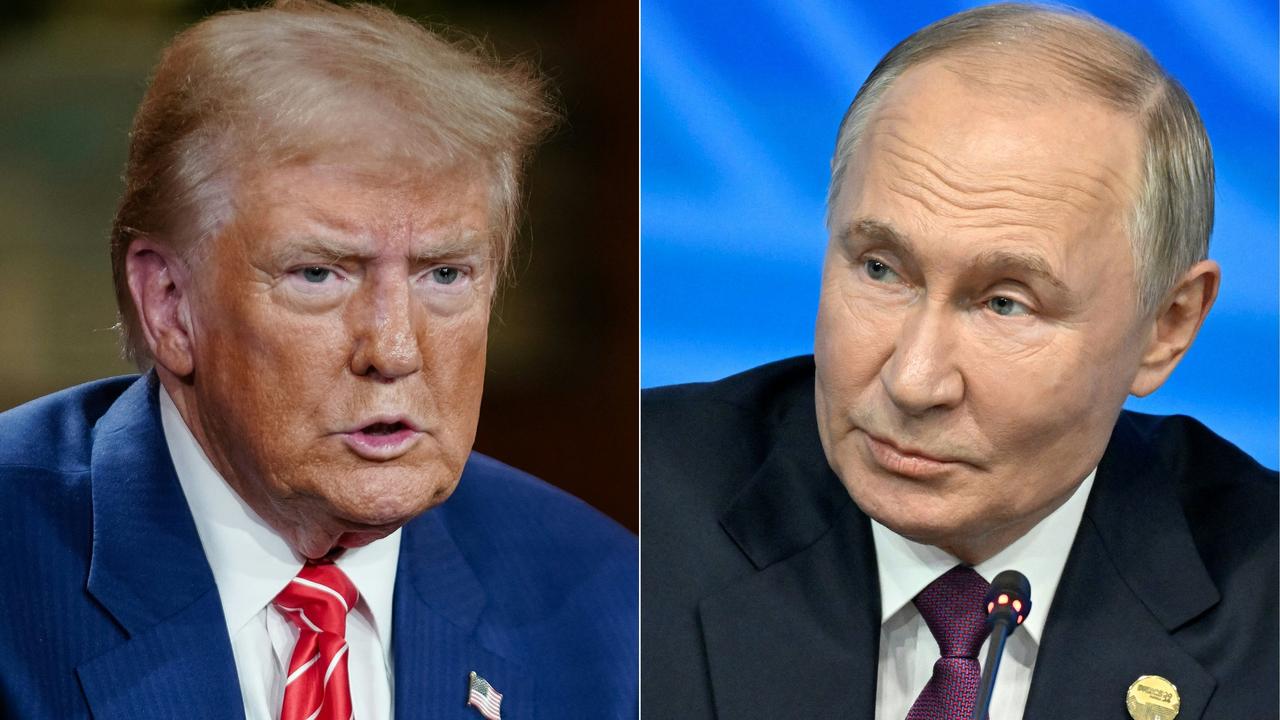Tax secrets of the super rich revealed
A huge document leak has revealed the offshore tax dealings of elite figures such as the Queen and Donald Trump’s commerce secretary.

A huge leak of 13.4 million documents show that Commerce Secretary Wilbur Ross, the Trump administration’s point man on trade and manufacturing policy, has a stake in a company that does business with a gas producer partly owned by the son-in-law of Russian President Vladimir Putin.
According to records obtained by the International Consortium of Journalists, Ross is an investor in Navigator Holdings, a shipping giant that counts Russian gas and petrochemical producer Sibur among its major customers. Putin’s son-in- law Kirill Shamalov once owned more than 20 per cent of the company, but now holds a much smaller stake.
The documents, dubbed the Paradise Papers, were obtained by the German newspaper Sueddeutsche Zeitung and shared with the International Consortium of Investigative Journalists (ICIJ).
The papers “show how deeply the offshore financial system is entangled with the overlapping worlds of political players, private wealth and corporate giants,” the ICIJ wrote on Sunday.
The names of more than 120 politicians in nearly 50 countries appear in the 1.4 terabyte data leak, along with figures from the worlds of sports and business. Among public figures linked to the documents was the Queen’s private estate which has millions of pounds invested in the tax havens, the BBC reported.
It is alleged that the Duchy of Lancaster, which handles the Queen’s investments, has held funds in the Cayman Islands and Bermuda. Around 10 million pounds ($20m) of the Queen’s private cash is said to have been tied up in offshore portfolios, the BBC reports.
There is nothing to suggest that any investments are illegal.
Commerce Department spokesman James Rockas said Ross “never met” Shamalov and has generally supported the Trump administration’s sanctions against Russia, according to the ICIJ report. Rockas added that Ross has withdrawn from matters related to transoceanic shipping vessels and has met the “highest ethical standards.”
The details are likely to add to the questions about ties between Russia and the Trump administration, connections that for months have shadowed the White House and are a focus of an investigation by special counsel Robert Mueller. Yet it wasn’t immediately clear how many partners Ross might have or what the profit-sharing agreement might be.
ICIJ disclosed the Ross holding as part of reporting on 13.4 million records of offshore entities in tax havens leaked to German newspaper Suddeutsche Zeitung. The newspaper then shared the records with ICIJ and a network of more than 380 journalists in 67 countries. The New York Times is its U.S. partner in this inquiry.
The Times earlier reported on the Ross holding.

It wasn’t immediately clear exactly how much of Navigator, which is publicly traded on the New York Stock Exchange, that Ross personally owns. ICIJ reported that four Cayman Island entities in which Ross and others invested in now own 31.5 per cent of Navigator. In financial disclosure forms he filed with the government earlier this year, Ross listed the Cayman Island entities, and Navigator as an asset, but the forms revealed not much else, including how much Ross makes personally from his ownership stake.
Sibur contributed 8 per cent to Navigator’s revenue last year, according to reports filed with securities regulators. Russia’s energy sector is largely controlled by individuals with ties to state actors, including Putin. Much of the new trove of files includes bank statements, emails and loan agreements from Appleby, a law firm that helps set up offshore dummy companies and trusts. Appleby told the ICIJ that there is “no evidence” that it has done anything wrong.
Other records came from Asiaciti Trust, a family-run offshore specialist based In Singapore, and from 19 corporate registries maintained by governments in jurisdictions that draw the wealthy seeking privacy.
Big investments in two U.S. tech companies from a Russian government bank and Russian energy giant have also come to light.
The ICIJ reported that Silicon Valley investor and Russian citizen Yuri Milner got $191 million from VTB Bank, and invested that money in Twitter. The leaked records also show that a financial subsidiary of Russian energy company Gazprom funded a shell company that invested in a Milner-affiliated company that held roughly $1 billion in Facebook shares shortly before its 2012 initial public offering.
Milner told the ICIJ that he was unaware of any involvement by the Gazprom subsidiary in any of his deals and that none of his investments has been related to politics.
Milner has also invested in a tech-savvy real estate fund that was co-founded by Trump adviser and son-in-law Jared Kushner called Cadre. Milner told the ICIJ that he used his own money for the investment.
Sunday’s revelations follow last year’s release of records from a Panama-based firm involved in setting up offshore accounts. That disclosure triggered investigations in several countries, the resignation of the prime minister of Iceland and ouster of the leader of Pakistan. The Panama Papers also revealed that close associates of Russia’s leader Putin had been using the dummy accounts abroad to store their wealth, including a close Putin friend who had $2 billion of offshore assets.
There are legitimate reasons for setting up offshore accounts, but lax regulation and anonymity in some jurisdictions make it easy to launder money, evade taxes and avoid regulatory scrutiny. Critics of the widening gap between the super-wealthy and the rest have seized upon the use of tax havens as revealed in the Panama Papers as evidence of a crisis, and governments have promised to crack down.
In the case of Ross, the ICIJ reported Navigator’s Russian customer, Sibur, has ties to Putin in addition to his son-in-law.
A big shareholder is Gennady Timchenko, who was targeted by the U.S. and other Western nations for sanctions after Russia’s invasion of the Ukrainian region of Crimea in 2014. A few months later, the U.S. barred banks from providing long- term financing to a gas company belonging to another large Sibur shareholder, Leonid Mikhelson. Mikhelson has also been sanctioned by the Treasury Department for propping up Putin’s rule.
Sibur itself was not targeted by the U.S. sanctions, but the Bank of America and the Royal Bank of Scotland reportedly backed away from doing business with the company.
The Russian gas producer last year contributed $23 million to Navigator’s revenue, an increase of more than 40 per cent in two years
AP


